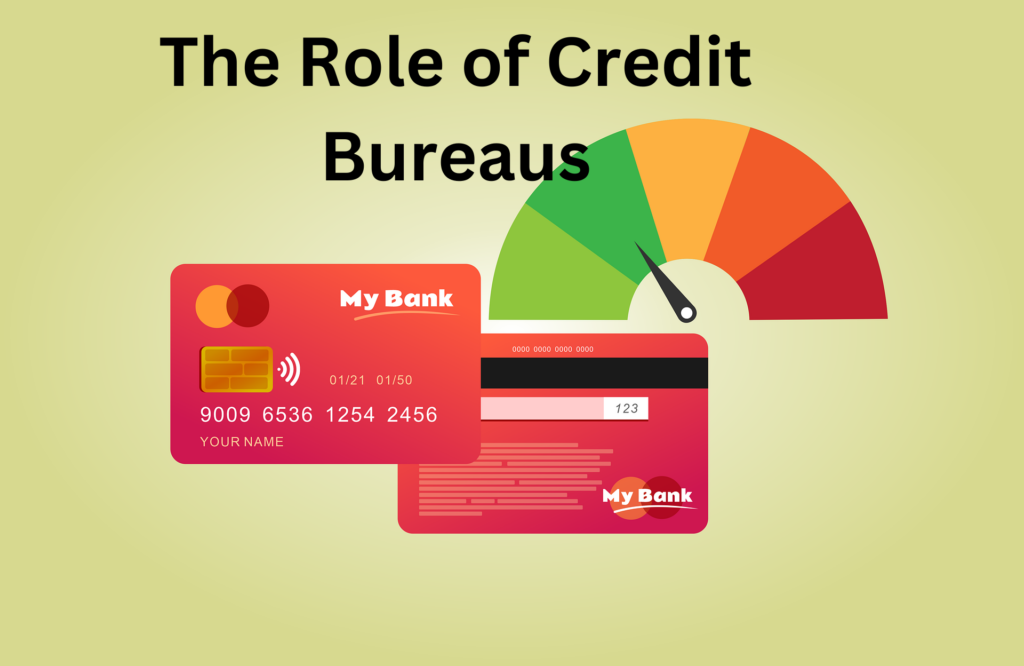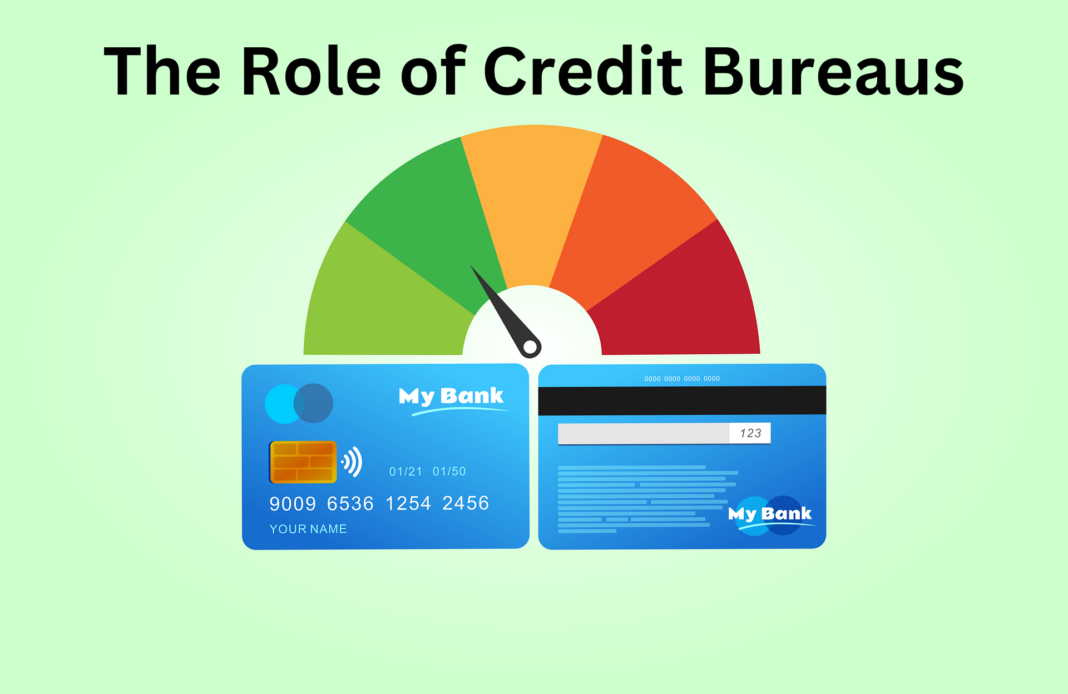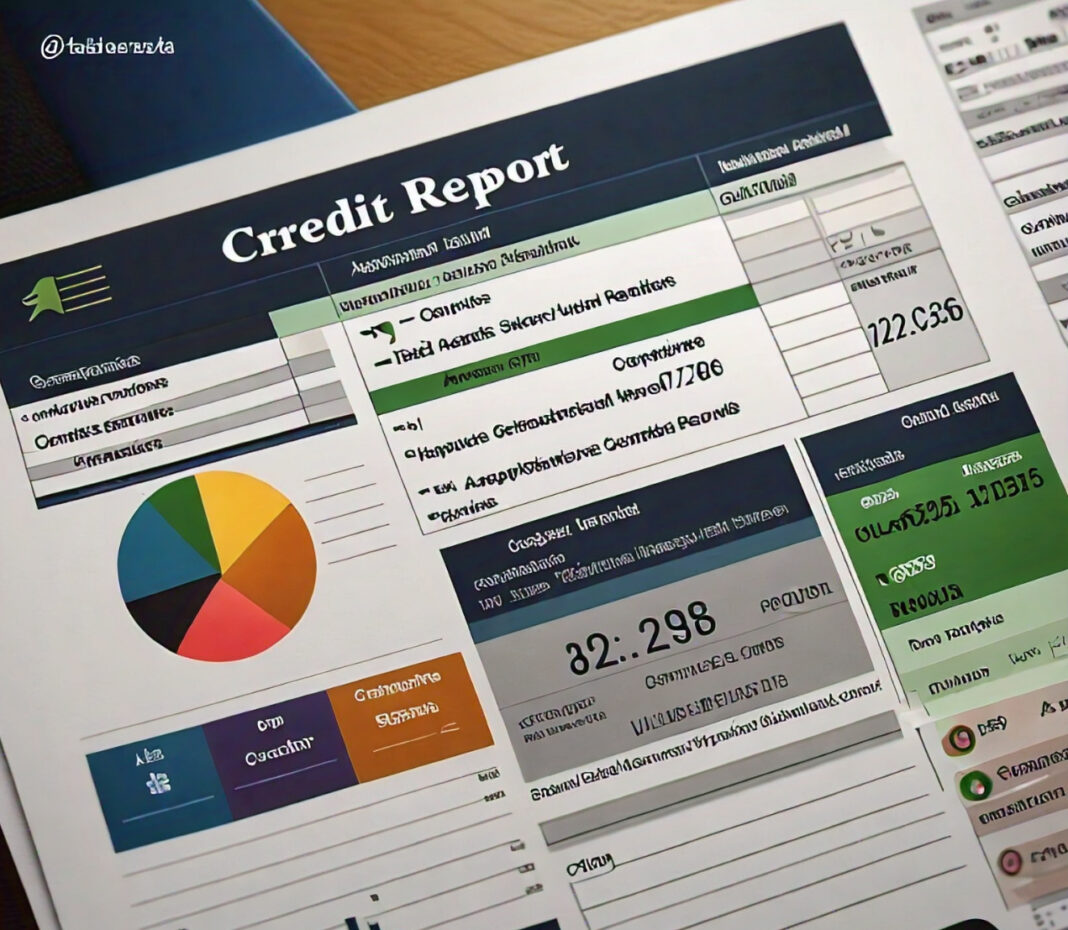Credit bureaus, also called credit reporting agencies, are companies that gather data about the credit history of individuals and businesses, analyze such data, and then distribute the same. They are the focal point for financial data, which should assist lenders, landlords, and other decision-makers in evaluating the creditworthiness and financial reliability of prospective borrowers or clients.

In this in-depth look into the world of credit bureaus, we will explore their functions, impact, and the controversies surrounding them. We also look at how these institutions shape the financial landscape and what you can do to ensure that they work in your favour.
The Big Three: Major Credit Bureaus
Speaking of credit bureaus in the United States, three names ring a bell: Equifax, Experian, and TransUnion. The three, popularly known as the “Big Three,” have dominated the credit reporting market. A look at each will thus be appropriate:
Equifax
Equifax was founded in 1899, making it among one of the oldest credit bureaus in the market. The company operates its services in more than 24 countries and maintains credit information on over 800 million consumers across the globe. Equifax suffered a huge data breach in 2017 in which the personal information of 147 million people was compromised. This issue also drew increased scrutiny toward the security practices of credit bureaus.
Experian
Experian is headquartered in Dublin, Ireland, and boasts a global presence in 37 countries. Other than credit reporting, the company offers fraud detection and marketing services as well. Experian has been credited with the introduction of free credit scores to consumers, a factor that has seen increased financial literacy.
TransUnion
With over three decades of existence since 1968, TransUnion has operations in over 30 countries around the world. Apart from credit reporting, it also focuses on risk and information solutions. TransUnion is also at the forefront in the creation of more comprehensive credit profiles for those consumers who have thin credit histories by incorporating alternative data sources to do this.
While these three dominate the market, there are indeed other smaller credit bureaus specializing in selected industries or lines of information.
How Credit Bureaus Work
Credit bureaus work by helping understand their role in the financial ecosystem. The following are their key activities:
Data Collection
Credit bureaus collect data from sources such as:
- Banks and credit card companies
- Mortgage lenders
- Auto lenders
- Student loan servicers
- Utility companies
- Landlords
- Public records, including bankruptcies and tax liens
This information generally encompasses the following:
- Personal information: name, address, Social Security number, etc.
- Accounts in credit, payment history
- Inquiries against credit
- Public records about credit, such as bankruptcy, judgment, etc.
Data Analysis and Scoring
This information, when collected, is utilized in credit reporting and the derivation of credit scores. The most widely used credit-scoring model is the FICO score, which the Fair Isaac Corporation originated. Another widely used credit-scoring model is VantageScore; this was developed by the three major credit bureaus.
These scores range from a low of 300 to a high of 850. The higher the score, the better the creditworthiness. Some of the factors that determine credit scores are:
Payment history
Credit utilization
Credit history length
Credit account types
Recent credit inquiries
Information Dispersal
Credit bureaus share this information with authorized parties like:
- Lenders
- Insurance companies
- Landlords
- Employers (with permission)
- Government agencies
These organizations thereby use this information to decide on lending, insurance rates, renting, and in some instances, employment.
The Influence of Credit Agencies on Consumers
Credit bureaus are considered some of the most powerful entities in the context of a consumer’s financial life. This is manifested in their reports and scores, which may affect things like:
Loan Approvals and Interest Rates
A good credit score can make all the difference between approval and denial for loans, apart from impacting the rate of interest that one gets, which could cost or save the consumer thousands of dollars over the life of a loan.
Housing Opportunities
Landlords often check credit reports to screen applicants. A poor credit history could limit your apartment or rental home choices.
Employment Opportunities
Some employers check credit reports, particularly if the job involves working with money or having financial responsibilities. While an employer cannot obtain your credit score from a credit reporting agency, an employer can obtain your credit history if you have granted permission.
Insurance Premiums
Many insurance companies use credit-based insurance scores to help determine policy premiums, especially for auto and homeowners insurance. Generally speaking, the better your credit, the lower your premium.
Utility Services
Utility companies sometimes require deposits if a customer has poor credit and may grant no deposits if they have good credit.
Consumer Rights and Credit Bureaus
Because of the huge impact credit bureaus can have on a person’s life, some background on consumers’ rights in regard to their credit information is necessary:
Fair Credit Reporting Act (FCRA)
FCRA is a federal law that prescribes how credit reporting agencies can collect, access, use, and share consumer information. Major provisions of FCRA include the following:
- A right to obtain a free annual credit report from each major bureau
- A right to dispute an inaccuracy of the report
- A time frame for how long negative information can stay on a credit report
- The individuals who have permissible access to credit reports and for what purpose
Credit Report Disputes
Consumers have a right to dispute information on their credit report if it is not accurate or incomplete. The credit bureaus are responsible for investigating the dispute and making corrections, if necessary, within 30 days.
Fraud Alerts and Credit Freezes
If consumers suspect they are victims of identity theft, they can place fraud alerts on their credit reports. They can also freeze their credit, which restricts who has access to the reports and makes it more difficult for identity thieves to open new accounts in an applicant’s name.
Criticisms and Controversies Surrounding Credit Bureaus
Even though they serve a fundamental purpose, credit bureaus are not immune to controversy. Among the more prevalent criticisms are:
Data Accuracy Issues
It has been shown by studies that a significant percentage of credit reports have inaccuracies. Such errors may involve vital consequences for consumers, as these reports will impact their possibilities of obtaining loans or even employment.
Data Breaches
The 2017 breach in Equifax brought to light the vulnerability of the millions of sensitive data maintained with credit bureaus. The whole incident drew into question the level of security of consumer information.
Opacity of Scoring Models
While credit bureaus publish general information on factors affecting an individual’s credit score, the actual details in algorithms that compute the score remain proprietary. Consequently, it may be challenging for consumers to discern exactly what particular financial behaviours will have. There are instances where financial counselling may expose vulnerable populations to further risk of fraud or identity theft.
MAKE Impact on Vulnerable Populations
Critics tend to stress that traditional credit scoring models may bring certain groups into a disadvantaged position, such as young people, immigrants, or those without access to traditional banking services.
Innovations and Future Trends in Credit Reporting
The credit reporting industry is moving to meet some of these criticisms and to adjust to changing financial realities:
Alternative Data Sources
Credit bureaus are increasingly turning to alternative data sources as a means of developing more complete credit profiles. This can include everything from rent payments and utility bills to even social media data for some.
Financial Inclusion Initiatives
Increasingly, efforts are channelled into building scoring models that have the capability to assess the creditworthiness of “credit invisible” consumers who otherwise could not provide traditional credit histories.
Open Banking and Real-Time Data
With the rise of open banking, real-time data sharing is on the increase and may afford a more accurate and up-to-date view of an applicant’s creditworthiness.
Blockchain Technology
A number of startups have started to investigate the use of blockchain to provide more secure and open credit-reporting systems.
How to Manage Your Credit Report
Credit reports are playing such an important part in the financial life of consumers that it has become very significant for them to take care of their credit information:
Check credit reports on a regular basis for errors or fraudulent activity. 2. Know what determines your credit score. 3. Pay bills on time and keep credit utilization low. 4. Limit over-applying for new credit. 5. Further protection: Invest in credit monitoring services.
Conclusion
Credit bureaus form an important component of the modern financial landscape and stand as gatekeepers of consumer credit information. Their functions involve the collection, analysis, and dissemination of data, which enables the lender base to assess risk, provides access to credit for millions of consumers, and considerably contributes to the stability of the financial system as a whole.
Yet, with great power comes great responsibility, and the institutions carrying this mantle bear a singular burden of care. In such a situation, the everlasting problems of data accuracy, privacy of consumer information, and financial inclusion raise challenges that cry for further scrutiny and innovation in the credit reporting industry.
In today’s financial environment, it is critical that consumers understand the role credit bureaus play and take an active management role in their own credit profiles. The more knowledgeable and aggressive we are in exercising our rights, the better position we will be in to ensure credit bureaus serve interests in a fair and efficient manner.
The technological changes to come will probably be lasting; there will also be more and more emphasis on financial inclusion. As these trends go forward, the delicate balance of the needs between lenders, consumers, and society as a whole will continue to guide how credit bureaus change and remain a part of our economic lives.






